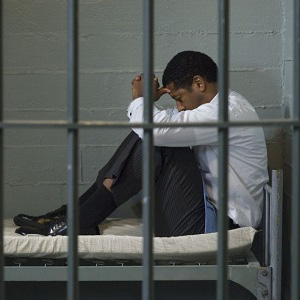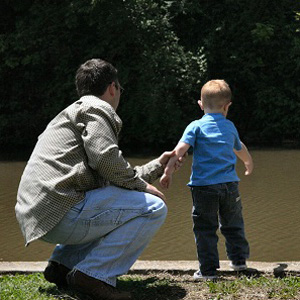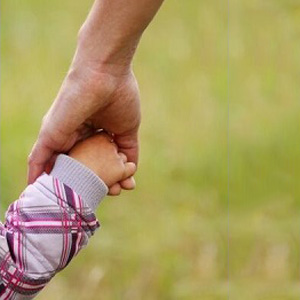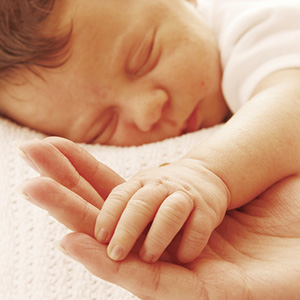
During summer vacation, the rules are relaxed a little. Children stay up later and might head off to camps and sports clinics and parents plan vacations to get some quality time with their families, away from the same old routine back home. But when you share custody with your former partner or have to keep up a parenting time schedule, it can be difficult to plan a fun getaway for yourself and your child. Going away or allotting time for your child to attend summer camp can often mean altering your custody or parenting time schedule. This is why it is so important that you maintain open communication with your former spouse. With some flexibility and willingness on both sides to compromise, you can give your child a summer full of fun and lifetime memories. Use the following tips to…Read More

Child custody is not determined through one quick decision. To make sure that a child’s needs are met after his or her parents’ divorce, the court examines a variety of factors present in both parents’ lifestyles to determine the best custody arrangement for the child. This process can take a considerable amount of time and involve multiple types of data about the parents. One type of data is each parent’s psychological profile. A psychological profile is an understanding of how an individual relates to others. It is a combination of his or her attitudes, values, expectations, and communication and parenting styles that show his or her fitness as a parent. As part of the child custody determination process, the court might require that each parent undergo a psychological evaluation. What Does A Psychological Evaluation Entail? Generally, it involves individual interviews…Read More

It absolutely can. How much your criminal record can affect your child custody arrangement depends on a few factors. These factors are as follows: The type of offense The number of offenses The victim of your offense The age of the offense The purpose of a child custody arrangement after a divorce is to promote a consistent, safe relationship between the child and both of his or her parents. The choices and restrictions the court makes for a family’s custody arrangement are made with the child’s best interest in mind. The most important concern when a parent has a criminal record is how this criminal history can affect his or her child. Recent offenses, violent offenses, and offenses that involve the child or another child can have a much more significant impact on an individual’s custody arrangement than older and…Read More

Possibly. It depends on your child’s age and maturity level. If your child expresses a desire to live with one parent or the other after your divorce, the main question the court will ask is “why?” If the court determines that your child has the capacity to make an informed, rational decision about where he or she should live after your divorce, it may allow your child’s preference to play a role in determining his or her custody arrangement. Usually, the court considers opinions of adolescents. But even adolescents sometimes have poor reasons for wanting to live with one parent or the other, such as one parent having more relaxed household rules. Another issue that the courts consider is that one parent might be heavily encouraging the child to express a preference for living with him or her. This is…Read More

When you are working through the process of determining child custody with the court, keep in mind that not all custody arrangements give both parents custody of the child. In many cases, one parent is named the custodial parent and the other is given parenting time with the child. Parenting time is a regularly-scheduled time for the parent and the child to spend together. Except for in cases where there is a significant threat to the child’s wellbeing, it is important for a child to maintain a relationship with each of his or her parents as he or she grows up. If the court feels that there is an element present in the noncustodial parent’s household or lifestyle that puts the child in danger, it could require that the parent’s visits with the child be restricted in some way. This…Read More

Generally, no. Once an adolescent or young adult is emancipated, he or she remains a legal adult for life. In New Jersey, a young man or woman is not automatically emancipated at eighteen. Although it is certainly possible to be emancipated at this age, many young men and women remain under their parents’ care until they graduate from college or otherwise obtain full-time employment. Being able to financially sustain oneself is a mark of adulthood; the end of an individual’s parents’ financial responsibility to him or her. This is why it is extremely rare to have an individual’s emancipation status reversed. Although the reversal of a young man or woman’s emancipation is legal in New Jersey, there is usually no reason for the court to do this. An example of a situation where an individual’s emancipation may be reversed is…Read More

There are many different ways New Jersey couples can adopt children and expand their families. Some couples choose to adopt children from overseas while others opt to adopt children who live in the United States. For some couples, the best route is through a private adoption whereas others choose to work with an adoption agency to bring their child home. Each type of adoption has unique benefits and challenges for the child and parents alike. For families who choose to adopt through an adoption agency, there are certain steps that they must follow. If you are considering adopting a child through an adoption agency, talk with an attorney at The Law Office of Eric B. Hannum Esq., LLC, about this process before you begin. Our attorneys can answer any questions you have about the adoption process and clarify any misconceptions…Read More

Families headed by same sex parents are more visible today than ever especially given the Suprme Court’s recent decision permitting same sex marriage nationwide. Despite same sex marriage becoming legal in New Jersey and throughout the nation, there are still certain legal issues that same sex parents face regarding their children. These legal issues are largely related to the child’s parentage. If both parents are not the child’s legal parents, the non-biological parent can face problems when seeking custody or visitation after a divorce. He or she may also face problems adding the child to his or her insurance policy if he or she is not the child’s legal parent. In New Jersey, same sex parents may jointly apply to adopt children privately and through adoption agencies. They may also foster children through the New Jersey Foster Care system. Second…Read More

When a married couple has a baby, the husband is automatically considered to be the child’s legal father. But if a couple is not married when their baby is born, the couple must establish the child’s paternity. It is crucial that the parents establish their child’s paternity for a few reasons. They are as follows: For the father to seek custody, visitation, and child support for the child. If a man is not his biological child’s legal father, he does not have the right to seek any of these. For the mother to seek child support from the child’s father. For the father to add the child to his insurance policies. This may include his healthcare insurance, his life insurance, or his automobile insurance in the case where the child is of age to drive. For many families, establishing paternity…Read More

When a couple with children divorces, child custody and support are two of the biggest issues that need to be worked out as part of their divorce settlement. In New Jersey, children are required to maintain contact with both parents following a divorce, unless there is a reason why one or both parents’ parental rights are terminated. Many divorced couples split custody of their children following their divorce. This type of custody arrangement is known as a shared custody arrangement. When a couple has shared custody of their children, the court may determine the schedule that best fits the children’s needs. For example, the parents might alternate weeks with the children or, if this is not a viable option, the children might spend Monday through Friday with one parent every week, alternating between both parents’ homes each weekend. The court…Read More
